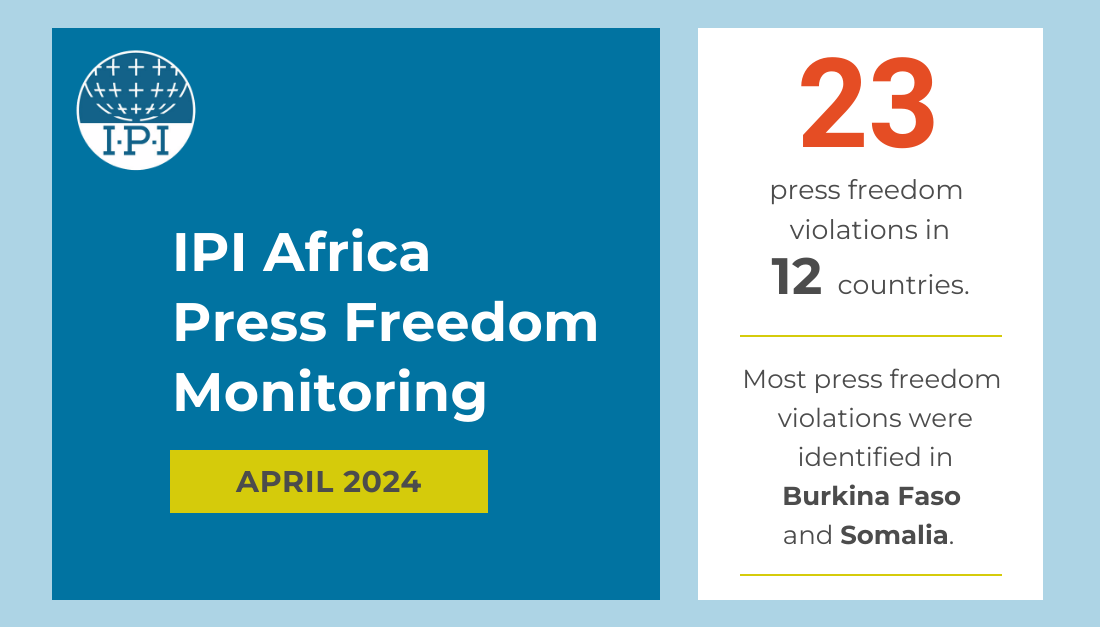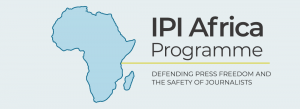In April 2024, IPI documented at least 23 incidents of threats to press freedom in 12 countries in sub-Saharan Africa. State-sponsored censorship was the most common violation recorded, followed by the arrest and detention of journalists. The highest number of violations was recorded in Burkina Faso. State actors remain the main perpetrators, responsible for 96 percent of the violations recorded.
DOWNLOAD THE FACTSHEET HERE (PDF FILE)
In Burkina Faso, the media regulatory body, CSC, imposed a two-week ban on BBC, Voice of America (VOA), and TV Monde. The suspension followed the publication of a Human Rights Watch report on the killings of hundreds of civilians by the military in the northern Yatenga province. CSC also restricted access to the websites of Deutsche Welle, Le Monde and Ouest-France, The Guardian, and African news agencies APA and Ecofin over their coverage of the civilian killings.
The military authorities in Sudan also banned three foreign media channels, namely Sky News Arabia, Al Arabiya, and Al Hadath. The authorities alleged that the channels failed to renew their license and respect journalism standards and ethics. The Sudanese Journalist Syndicate denounced the suspension as a blatant attack on press freedom.
Authorities in Togo arrested French journalist Thomas Dietrich on April 15. He intended to cover the electoral campaigns leading up to the Parliamentary elections. Dietrich was denied accreditation and further expelled from Togo following a six-month suspended sentence.
In Somalia, the National Intelligence and Security Agency (NISA) detained journalist Hussein Abdulle Mohamed of SYL TV, on April 6. His arrest followed his publications exposing a NISA report that detailed expected dismissals within the agency. Mohamed was detained overnight and released without charges.
Elsewhere, in Burundi, on April 15, authorities arrested journalist Sandra Muhoza of the online news outlet La Nova. She was accused of “endangering the internal security of the state and ethnic aversion”. Her arrest and imprisonment followed a comment she made in a WhatsApp group over the alleged distribution of machetes to “Imbonerakure”’, the youth league of the ruling party CNDD-FDD, which has been accused of human rights abuses.
Positive developments
In DRC, Radio communautaire de Mangina (RCM) in North Kivu resumed its broadcasting activities on April 7, after 90 days of forced closure by the military. The radio equipment that had been seized was also returned.
In South Africa, the Film and Publication Board (FPB) withdrew regulations that had been introduced to allegedly combat misinformation and disinformation during the May 29 elections. This development followed joint advocacy intervention by the Media Monitoring Africa Trust, the South African National Editors Forum, the Campaign for Free Expression, the Press Council of South Africa, and the SOS Support Public Broadcasting Coalition. The regulations were criticized as posing a risk to free expression and media freedom.

